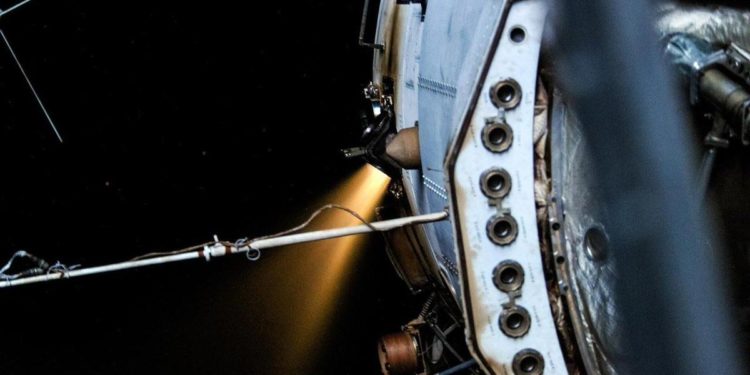[ad_1]
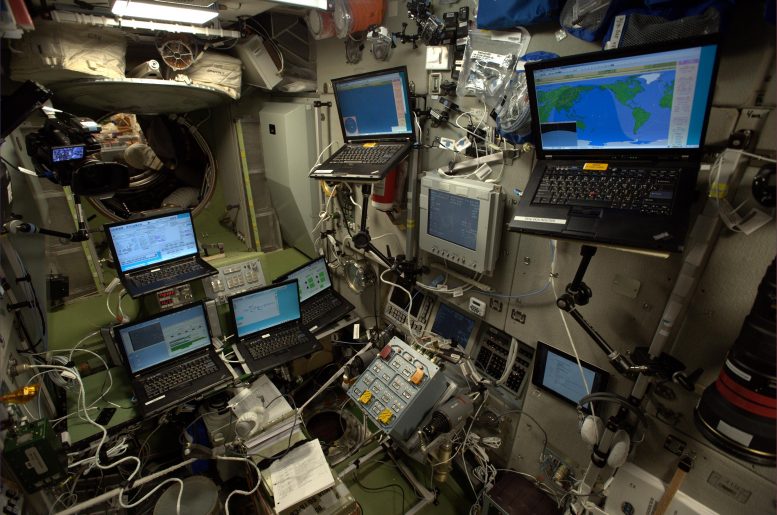
The setup within the Russian Zvezda module on the Worldwide House Station shortly earlier than the docking of Europe’s Automated Switch Car Georges Lemaître (ATV-5). Credit score: ESA/NASA
The House Station has grown to the scale of a soccer subject and house businesses wish to prolong its lifetime till 2030. European-built computer systems have quietly been retaining this orbital outpost on observe and in the suitable place, operating within the background since 2000.
The Knowledge Administration System (DMS) computer systems within the Russian Zvezda module have been constructed over 20 years in the past by what’s now Airbus. Two fault-tolerant computer systems accumulate information and supply navigation, communications, and operations for the Russian phase.
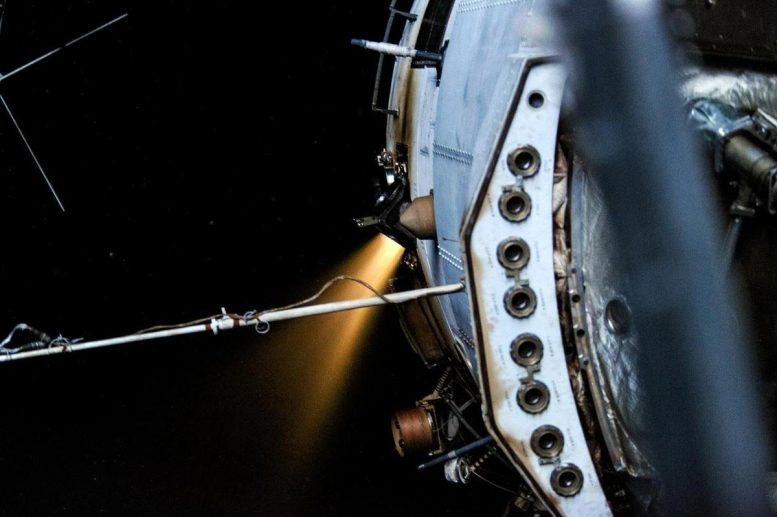
Zvezda burning its engines to regulate the House Station’s orbit. The Worldwide House Station adjusted its orbit to create the suitable situations to welcome Luca’s Soyuz and the cargo car and later this month the Progress MS-12 provide spacecraft. Credit score: ESA
These are required for Worldwide House Station operations, and a sudden breakdown may result in catastrophic penalties. To make sure continuity three models work in parallel with two energetic and one standby to take over if one fails. A fourth laptop is saved as spare that’s used as quickly as one of many computer systems in energetic responsibility has issues.
Mission-critical improve
Extra fault-tolerant computer systems have been constructed for a Russian module quickly to be launched to the Worldwide House Station, the Multipurpose Laboratory Module. The brand new computer systems exhausted the spare components saved apart for floor repairs and the manufacturing of recent computer systems.
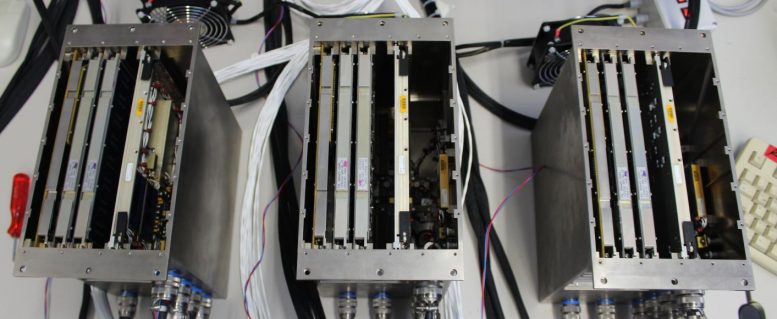
Knowledge Administration System (DMS) Computer systems. Credit score: ESA
After years of operations, engineers seen that many of the failures on the bottom and on-orbit computer systems occurred in reminiscence modules on one of many printed circuit boards of the computer systems. Every time, a failed laptop was eliminated, returned to the bottom for repairs after which re-launched, with an extended turn-around and impression on logistics. As well as, it quickly turned clear that this strategy was not sustainable as a result of lack of components.
Following intensive technical discussions and testing on Earth, engineers proved new printed circuit board, with the identical kind and performance however constructed utilizing fashionable and accessible elements, might be the answer.
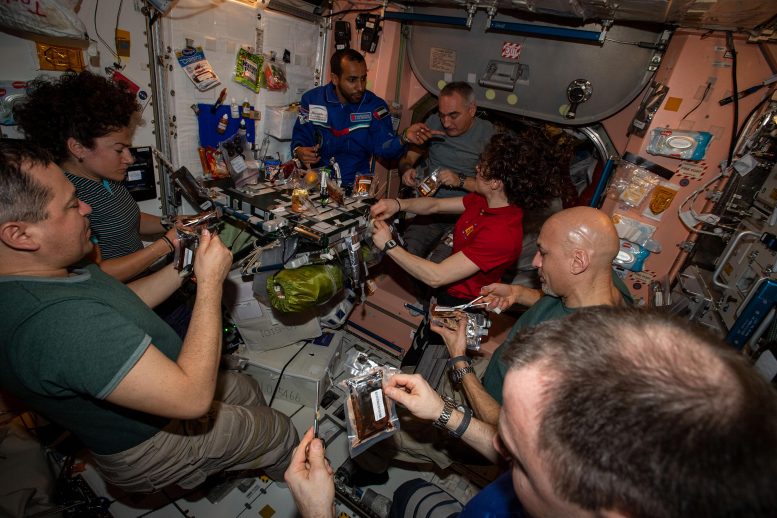
When Earth is so distant, it helps to have associates close by. The same old six-astronaut crew of the Worldwide House Station welcomed three extra and a cargo car in September 2019, making for a full home on the orbital outpost. This picture was taken of the staff gathered for a celebratory dinner within the Russian Zvezda module, the meals preparation space of the House Station. Credit score: NASA
Groups in Russia and Europe thought-about upgrading the pc boards instantly by an astronaut on the House Station in weightlessness – the equal of open-heart surgical procedure on Earth! This was no simple job to exhibit, contemplating the computer systems weren’t designed for upkeep on orbit and the models have been closed with small screws, generally even glued in place.
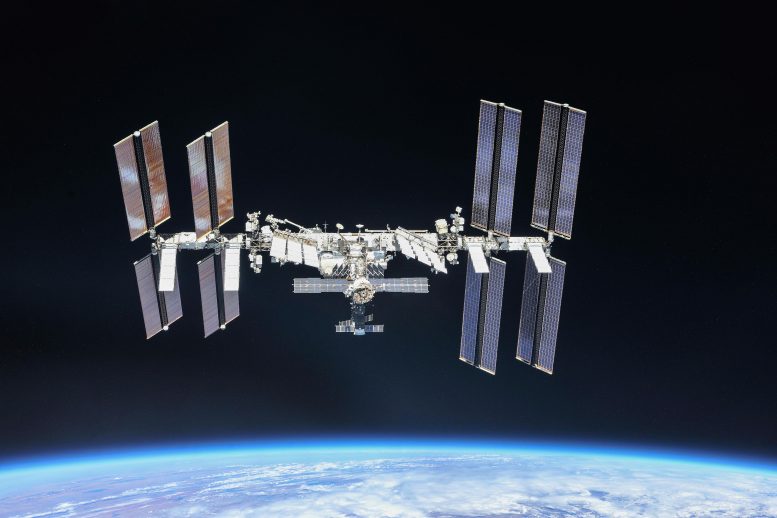
The Worldwide House Station photographed by Expedition 56 crew members from a Soyuz spacecraft after undocking. NASA astronauts Andrew Feustel and Ricky Arnold and Roscosmos cosmonaut Oleg Artemyev flew round of the orbiting laboratory to take footage of the station earlier than returning residence after spending 197 days in house. The Station celebrated the 20th anniversary of the launch of the primary factor Zarya in November 2018. Credit score: Roscosmos/NASA
Very like getting ready for a spacewalk, engineers and Russian cosmonauts practiced and demonstrated the method on Earth to make sure the operations have been possible and might be carried out in house with out threat.
Satisfied that this strategy would work new laptop boards have been ordered in 2015 and despatched to the House Station in 2018.
House transplant
Ready for the brand new mainboards to achieve the House Station, a failed laptop was saved on-orbit. When the brand new components and skilled astronauts arrived groups determined to make use of a failed unit as a take a look at case.
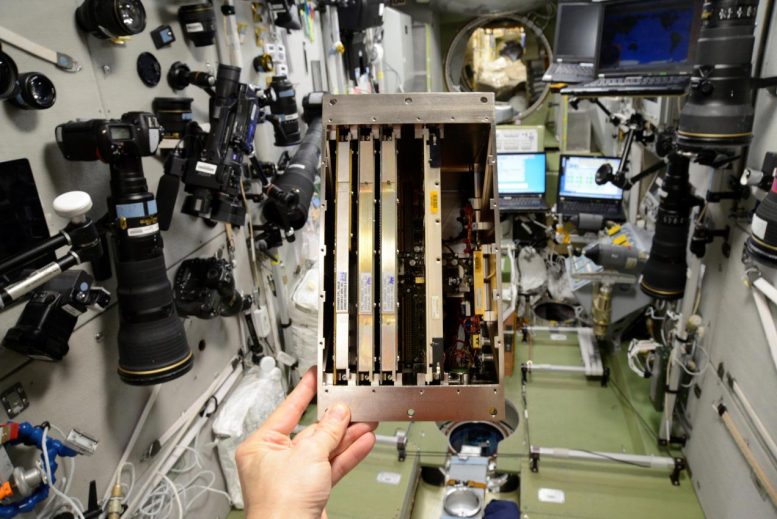
The Knowledge Administration System (DMS) computer systems within the Russian Zvezda module have been constructed over 20 years in the past by what’s now Airbus. Two fault-tolerant computer systems accumulate information and supply navigation, communications and operations for the Russian phase. Credit score: Roscosmos
In January 2019 the older board was changed with the brand new inventory. At the moment cosmonauts confirmed that the pc had survived the operation however weren’t but sure that it was totally match. Crew time in house is scarce and the groups deliberate to attend for the following failure earlier than putting in the pc that had undergone a coronary heart transplant and totally test it. Final month one of many previous computer systems had issues and so it was eliminated and changed with the brand new unit.
All is now confirmed to be working correctly, with nice satisfaction to the personnel at RSC-Energia, Airbus and ESA. This answer requires less expensive transport to Earth orbit as solely the boards should be swapped as an alternative of the entire models – the restore time is now decreased from six months to some days.
Future missions
This sort of behind-the-scenes work is the sort that doesn’t get a lot consideration except one thing goes incorrect, however the brand new strategy is required as people discover farther into our Photo voltaic System, beginning on the Gateway, the place provides from Earth are usually not available.
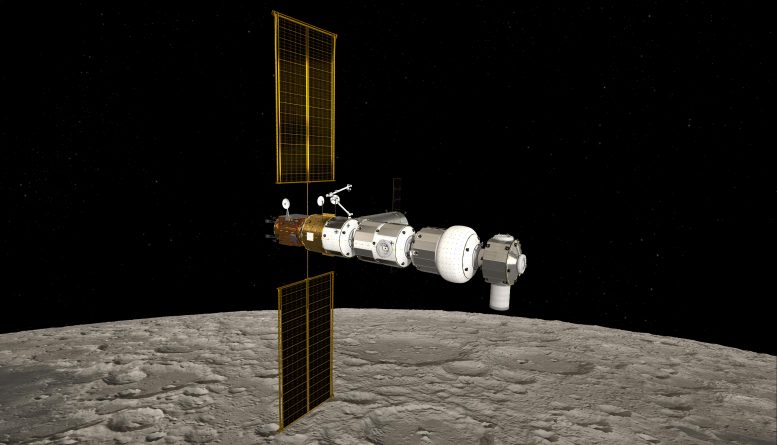
Artist’s impression of the Gateway over the Moon. The Gateway is the following construction to be launched by the companions of the Worldwide House Station. Credit score:
ESA/NASA/ATG Medialab
Upkeep on the Worldwide House Station demonstrates the expertise and design data wanted to assist future missions whereas making certain extra sustainable operations – a win-win state of affairs.
[ad_2]
Source link
